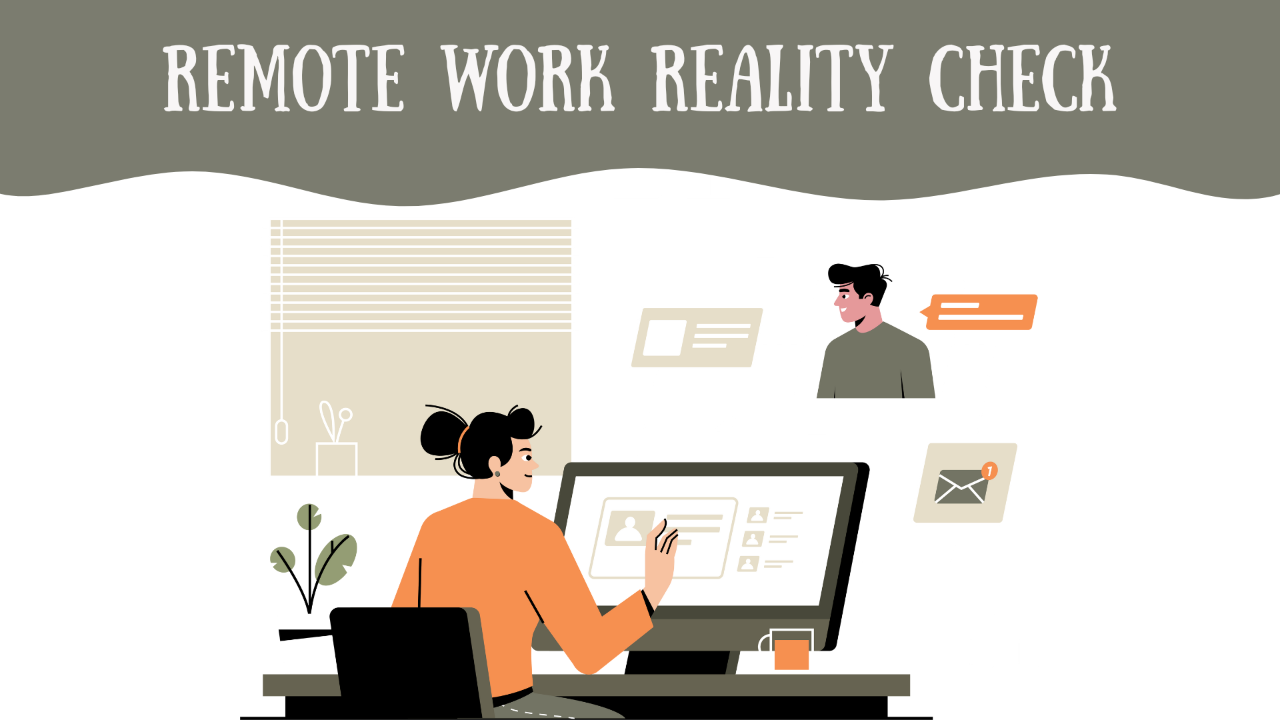Remote Work Reality Check: Communication, Accountability and the Quiet Decline of Standards
Oct 29, 2025
Remote work is no longer a temporary adjustment. It’s the new operational baseline, and with it comes a hard truth: some people thrive with autonomy while others quietly disappear behind it.
The narrative that remote work automatically creates empowered, engaged teams sounds great on LinkedIn, but it leaves out the part leaders actually deal with. The reality is this: without intentional communication and real accountability, remote work environments quietly lower performance standards in exchange for stability. Not because leaders don’t see it, but because replacing underperformers is harder than keeping them. That is not always the best answer, but sometimes we see organizations settle for it.
Communication is Not the Same as Being Available
Most remote teams believe they communicate well because tools like Slack, Teams and Zoom are constantly in motion. But response is not communication. Status updates after someone asks for them is not communication. Being online during core hours is not enough commitment. The old…”we see him/her on line” doesn’t mean he/she is doing anything.
Communication in a remote model must be proactive, not reactive. It should move the work forward without waiting to be pulled. Momentum in a remote setting is invisible unless team members actively surface blockers, define progress, and say out loud: here’s what’s moving, here’s what’s stuck and here’s what I need next.
Silence in an office is neutral. Silence in remote work is often mistaken for alignment, that everyone seems happy because we haven’t heard a complaint and that’s how months of drift go unnoticed.
The Rise of “Just Enough to Stay Employed”
Ask any leader privately, and they'll tell you they have at least one or two team members producing “just enough.” They respond to messages. They attend calls. They don’t cause problems. But they don’t create movement. They don’t take ownership. They wait to be directed.
In an office, that lack of drive is obvious. In remote work, it blends in. And because recruiting committed, business-minded talent is incredibly difficult right now, many leaders tolerate it. Quietly. Reluctantly. But they do. Its impactful for me to write this as a leader I am guilty of it.
This is how standards erode in a remote culture. Not with a dramatic failure, but with daily concessions.
Accountability Is Not Micromanagement. It’s Respect.
High performers do not fear accountability. They find structure reassuring because it sets the playing field. The difference between oversight and micromanagement comes down to clarity.
If expectations are not visibly defined what “done” means, when progress is expected, what outcome a task feeds then accountability conversations feel personal instead of operational. People feel policed rather than aligned.
Remote work does not require less leadership. It requires more visible leadership. And that starts with defining standards that are tied to outcomes, not presence.
How to Spot Quiet Disengagement Early
Disengagement in remote work rarely shows as conflict or overt resistance. It shows as passive drift:
- Work that technically progresses but never improves.
- Delays repeated so often they become accepted.
- “Still pending” “data isn’t available” updates instead of “Here’s the plan to resolve it.”
- No forward-looking questions. Only reactions to what’s already on the calendar.
If no one is pushing the work forward without being asked, you don’t have ownership. You have attendance.
Resetting Expectations Without Creating Drama
Re-aligning a remote team doesn’t require confrontation. It requires a reset that is clear, non-negotiable, and business-centered.
Example language that works:
“Going forward, updates need to be proactive, not reactive. If something isn’t moving, I expect it to be surfaced early not discovered when a deadline hits. Remote work gives us flexibility, but that flexibility requires visible accountability.”
State the new line. Let it stand. The right people will adjust. The ones who don’t were already disengaged.
Final Thought
Remote work isn’t the issue. The absence of clearly protected standards is. When autonomy is given without accountability, drift becomes culture. And culture, once settled at that level, is very hard to pull back up. “And to be completely transparent I let it happen in our remote teams until we realized silent drift had become normal and work was not getting done timely or efficiently.”
If you're leading a remote team and want a quick-reference tool to hold the line on performance, I created a one-page Remote Accountability Checklist you can download here. Share it with your team. It’s written for real managers dealing with real productivity drift not theory.
